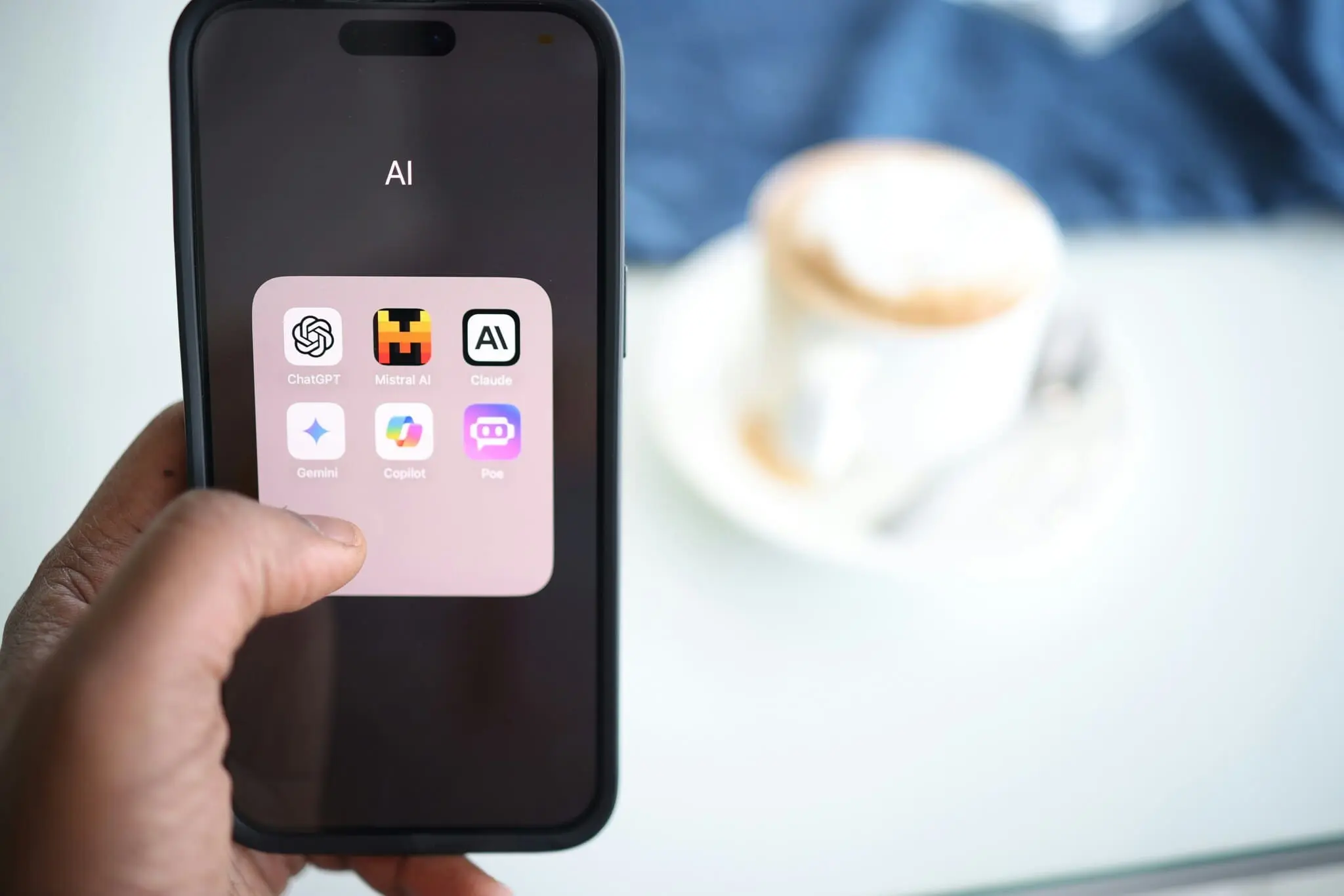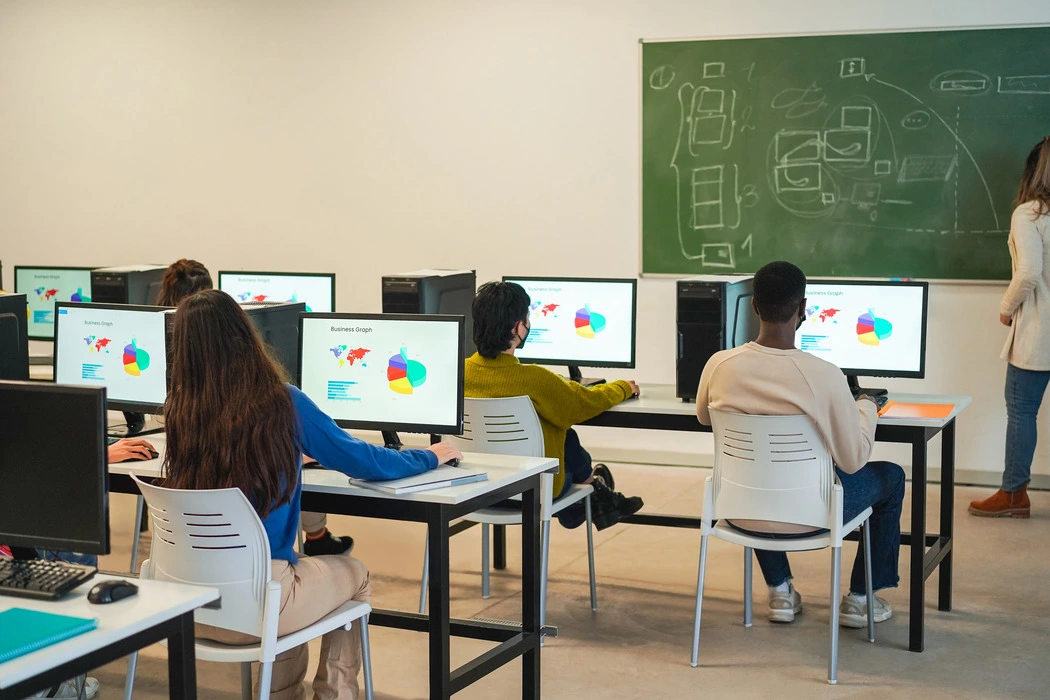The Practice Principle: Why Memorization Isn't Enough
Cognitive science has consistently shown that passive memorization often leads to what educators call "shallow learning" - information temporarily stored but quickly forgotten. True knowledge acquisition happens when:
- Neural pathways in the brain are strengthened through repeated use
- Concepts are connected to existing knowledge frameworks
- Information is actively retrieved and applied in different contexts
- Skills are practiced until they become intuitive
Research from learning scientists like Robert Bjork demonstrates that "desirable difficulties" - challenges that require mental effort - lead to stronger, more durable learning. This is where AI can play a valuable supporting role without undermining the necessary struggle that leads to growth.
Effective Ways to Use AI in Your Study Routine
1. Personalized Explanation Generator
When confronting challenging concepts, AI can provide tailored explanations based on your specific questions.
Example: A student struggling with the electron transport chain in biology might ask an AI to explain it first using a factory analogy, then using a bucket brigade comparison, and finally in terms of an electrical circuit. After finding the explanation that resonates, the student would then practice explaining the concept in their own words without referring back to the AI's explanation.
Implementation: "I understand the electron transport chain creates ATP, but I'm confused about how electrons actually move through the system. Can you explain it using an analogy about energy transfer?"
2. Problem Generator for Deliberate Practice
One of the most powerful applications of AI is its ability to create unlimited practice opportunities.
Example: A calculus student working on integration techniques could ask AI to generate increasingly complex integration problems. Starting with basic substitution methods, the AI could gradually introduce more challenging problems involving partial fractions or integration by parts. The student would solve each problem independently, checking work afterward.
Implementation: "I need to practice integration by parts. Can you create five problems of increasing difficulty? I'll solve them first and then discuss where I got stuck."
3. Comprehensive Study Plan Assistant
Breaking down complex subjects into manageable chunks with appropriate sequencing can significantly improve learning efficiency.
Example: A student preparing for the MCAT might provide AI with their current knowledge level, available study time, and target test date. The AI could then develop a 12-week study plan with specific daily objectives, suggested resources, and built-in review sessions. The student takes ownership by adapting the plan to their learning style and tracking progress independently.
Implementation: "I'm preparing for the MCAT in 3 months. I'm strong in biology but weak in physics and organic chemistry. Can you help me create a study schedule that allocates more time to my weaker areas while maintaining my strengths?"
4. Detailed Feedback on Practice Attempts
After independent work, AI can provide specific, constructive feedback that mimics what an experienced tutor might offer.
Example: A student writing a persuasive essay could complete a draft independently, then ask AI to evaluate specific aspects like argument structure, evidence usage, or counterargument anticipation. Rather than rewriting sections, the AI would highlight areas for improvement and suggest revision strategies the student can implement themselves.
Implementation: "I've written this persuasive essay about renewable energy policies. Could you specifically analyze my use of evidence and suggest how I could strengthen the connection between my data and my claims?"
5. Concept Connection Builder for Deeper Understanding
Understanding how concepts connect across disciplines leads to more robust and transferable knowledge.
Example: A student studying macroeconomics might ask AI to identify connections between monetary policy, inflation, and international trade. After reviewing these connections, the student would challenge themselves to find additional links to historical events or current news stories without AI assistance.
Implementation: "I'm studying monetary policy in economics. Can you help me understand how it connects to international currency markets? After you explain, I'll try to apply this understanding to analyze the current situation between the dollar and euro."
6. Question Formulation Helper for Critical Thinking
Learning to ask good questions is a crucial academic skill that AI can help develop.
Example: When studying American civil rights history, a student might ask AI to suggest thought-provoking questions about the effectiveness of different protest strategies. The student would then research these questions independently, forming their own evidence-based conclusions.
Implementation: "I'm researching civil rights movements. Can you suggest 5-7 analytical questions about comparing non-violent vs. direct action protest strategies that would help me think more deeply about their relative effectiveness?"
7. Active Recall Practice Sessions
Instead of passive review, AI can facilitate active retrieval practice, which research shows dramatically improves retention.
Example: After studying photosynthesis, a student would explain to AI everything they remember about the light-dependent and light-independent reactions without looking at notes. The AI would identify misconceptions or gaps in understanding, which the student would then address through targeted review.
Implementation: "I just studied the Krebs cycle. Without checking my notes, I'll explain the entire process to you. Please identify any steps I missed or explained incorrectly so I can focus my review."
8. Mock Discussion Partner for Complex Topics
Articulating and defending ideas in conversation deepens understanding and prepares students for seminar discussions.
Example: A philosophy student preparing for a class on existentialism might engage AI in a simulated discussion about Sartre's concept of radical freedom. The AI could present counterarguments from different philosophical traditions, challenging the student to refine their understanding and articulate more nuanced positions.
Implementation: "I'm preparing for a discussion on Sartre's 'Existentialism is a Humanism.' Can you take the position of a determinist philosopher and challenge my understanding of radical freedom? I want to practice defending existentialist positions."
9. Writing Coach for Iterative Improvement
Good writing develops through multiple drafts and thoughtful revision, a process AI can support without replacing.
Example: A student writing a research paper would complete sections independently, then ask AI for specific feedback on clarity, argument structure, or paragraph coherence. The student would implement revisions themselves, potentially seeking additional feedback on subsequent drafts to see if the issues were effectively addressed.
Implementation: "I've written this introduction to my research paper on urban agriculture. Could you evaluate how effectively I've established my research question and signposted my argument? I'm concerned it might not be clear where the paper is headed."
10. Efficient Resource Finder and Research Assistant
When additional learning resources are needed, AI can help identify the most relevant materials.
Example: A student confused about quantum entanglement might ask AI to recommend specific chapters in textbooks, video lectures, or academic articles that explain this concept clearly. The student would then engage with these resources directly, synthesizing the information themselves.
Implementation: "I'm struggling to understand quantum entanglement, particularly Bell's Inequality. Can you recommend 2-3 accessible resources that explain this concept with good visualizations or analogies? I prefer video explanations if available."
11. Metacognitive Coach for Learning Strategies
AI can help students become more aware of their learning processes and develop more effective study strategies.
Example: A student who consistently struggles with timed tests might describe their experience to AI, which could suggest specific techniques like time-boxed practice, anxiety reduction strategies, or different approaches to problem prioritization. The student would experiment with these strategies during practice sessions to find what works best.
Implementation: "I always run out of time on math tests. I get stuck on difficult problems and spend too much time on them. Can you suggest specific strategies to improve my time management during exams?"
12. Customized Application Exercises
Applying knowledge in varied contexts strengthens understanding and improves retention.
Example: After learning about cognitive biases in psychology, a student might ask AI to generate realistic scenarios where specific biases might appear in everyday life. The student would practice identifying which biases are at play and explaining the underlying psychological mechanisms.
Implementation: "I've studied common cognitive biases like confirmation bias, availability heuristic, and anchoring. Can you create 5 realistic everyday scenarios where these biases might influence decision-making? I want to practice identifying them in context."
The Balance: Guidance Without Dependency - Practical Implementation
The most effective use of AI maintains a careful balance where students:
- Start independently - Always make an initial attempt without AI assistance
- Use AI strategically - Identify specific areas where guidance would be most valuable
- Return to independent work - Apply insights gained from AI through practice
- Reflect on the process - Consider what was learned both about the subject and about personal learning patterns
- Gradually reduce reliance - As skills develop, decrease the frequency of AI consultation
Example of This Balance in Action: A student working through a challenging physics problem would:
- First attempt the problem completely independently, documenting where they get stuck
- Consult AI specifically about the conceptual roadblock, not the entire problem
- Apply the conceptual clarification to complete the problem themselves
- Try similar problems without assistance to confirm understanding
- Review both successful and unsuccessful approaches to identify patterns in their problem-solving process
Common Pitfalls and How to Avoid Them
Dependency Trap
Warning Sign: Checking with AI before attempting work independently Solution: Establish a "first attempt" rule - always try problems completely on your own before seeking guidance
Verification Addiction
Warning Sign: Needing constant confirmation that answers are correct Solution: Build tolerance for uncertainty by checking work less frequently and developing self-verification strategies
Shortcut Seeking
Warning Sign: Asking AI for complete solutions rather than targeted guidance Solution: Frame questions specifically to request hints or conceptual explanations rather than finished work
Practice Avoidance
Warning Sign: Reading AI explanations without subsequent independent application Solution: Follow a "3:1 rule" - for every explanation received, complete at least three practice problems independently
Measuring Effective AI Use
Students can assess whether their AI use supports rather than undermines learning by asking:
- Am I spending more time practicing independently than consulting AI?
- Can I explain concepts in my own words without referring to AI explanations?
- Has my need for AI assistance decreased as I've progressed through the material?
- Can I successfully apply concepts in new contexts not covered in AI explanations?
- Am I using AI to extend my thinking rather than replace it?
If the answer to these questions is "yes," the balance is likely appropriate.
The Future of AI-Enhanced Learning
As AI tools continue to evolve, the most successful students will be those who develop the metacognitive skills to use these tools judiciously. The goal isn't to avoid AI, but to integrate it thoughtfully into a learning process that remains centered on personal engagement, effort, and growth.
By treating AI as a responsive study partner rather than a replacement for your own thinking, you build genuine skills and knowledge that will serve you long after the test is over. The most valuable contribution of AI to education may not be in providing answers, but in helping students ask better questions and find their own path to understanding.
Quizard.io helps students practice active recall by transforming their study notes into customized quizzes and flashcards, reinforcing their own understanding through consistent retrieval practice.
Join our waitlist and explore the benefits of early joiners!



